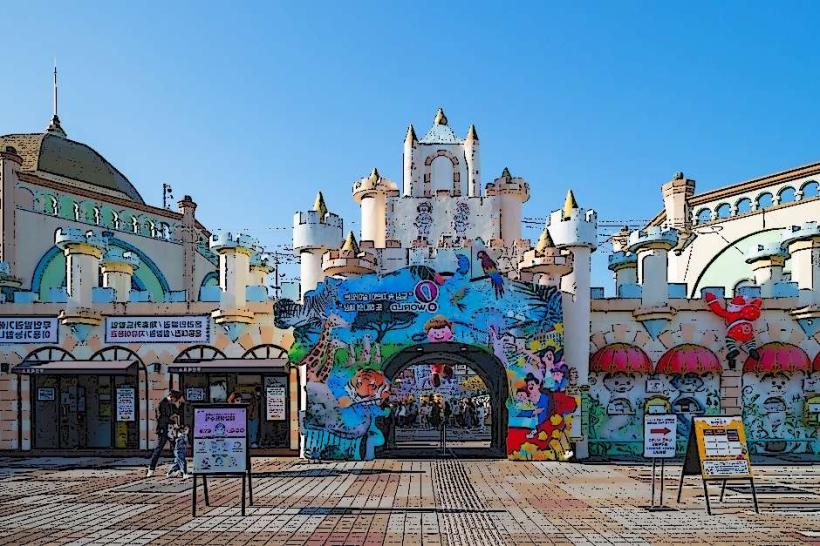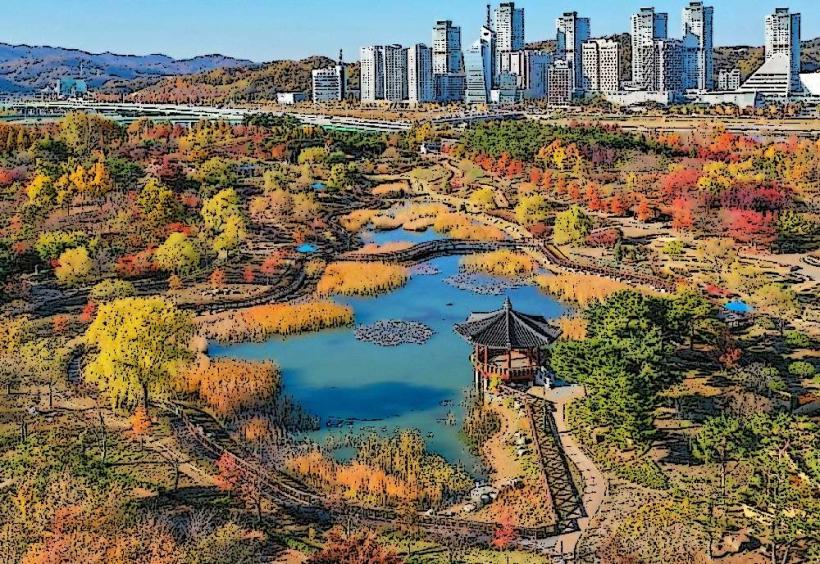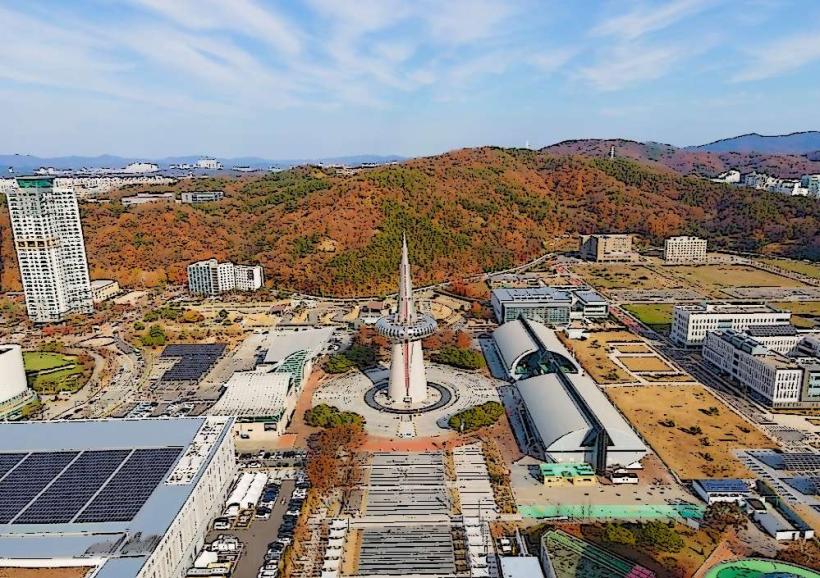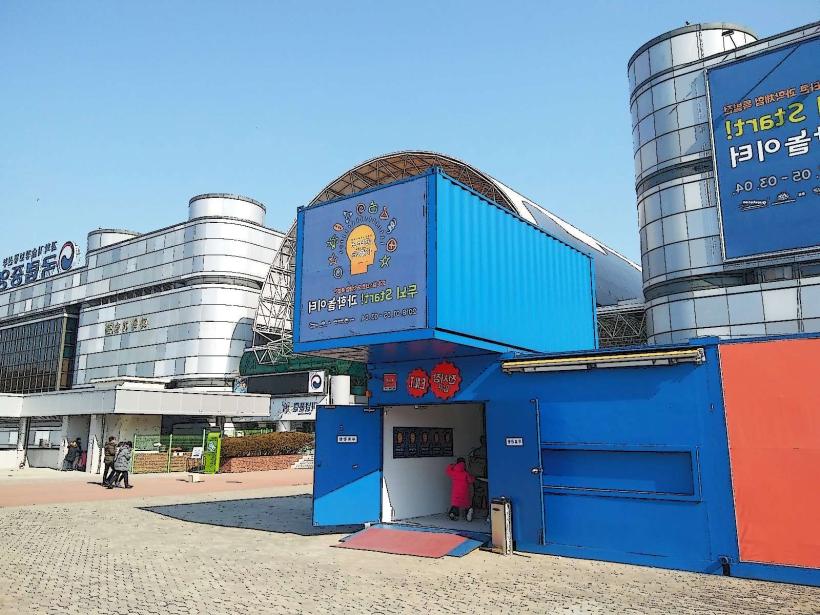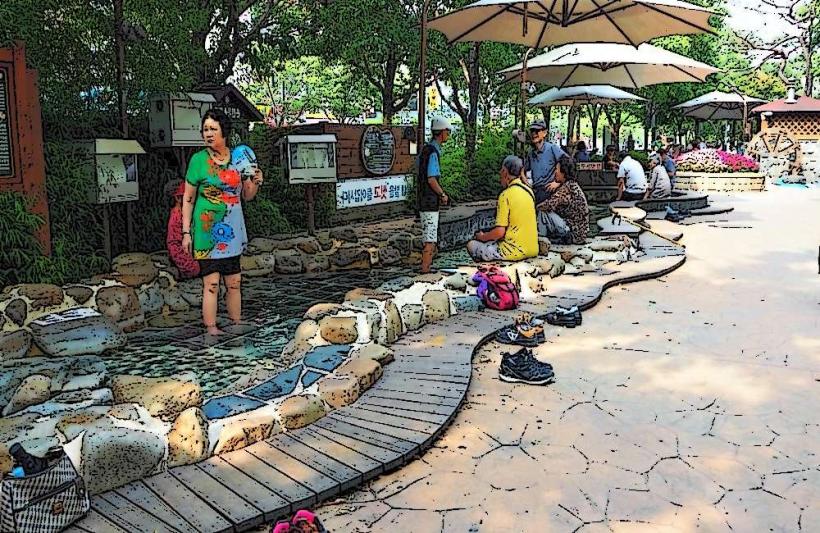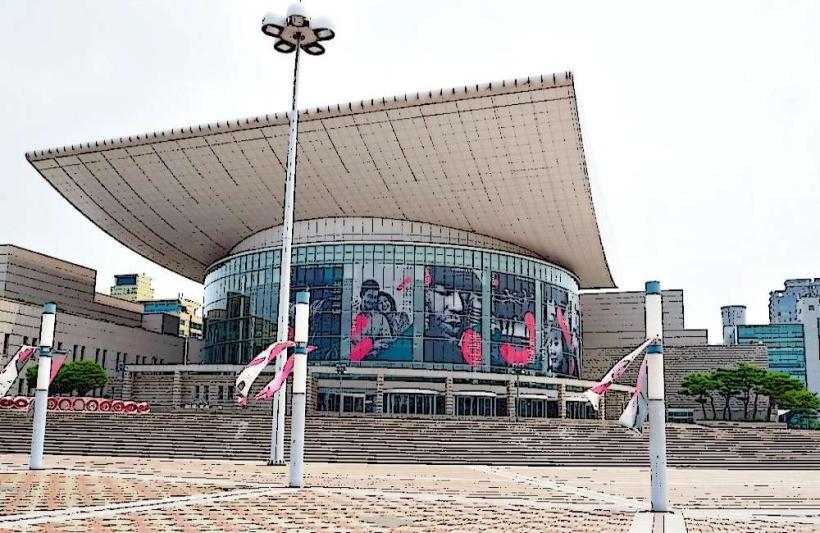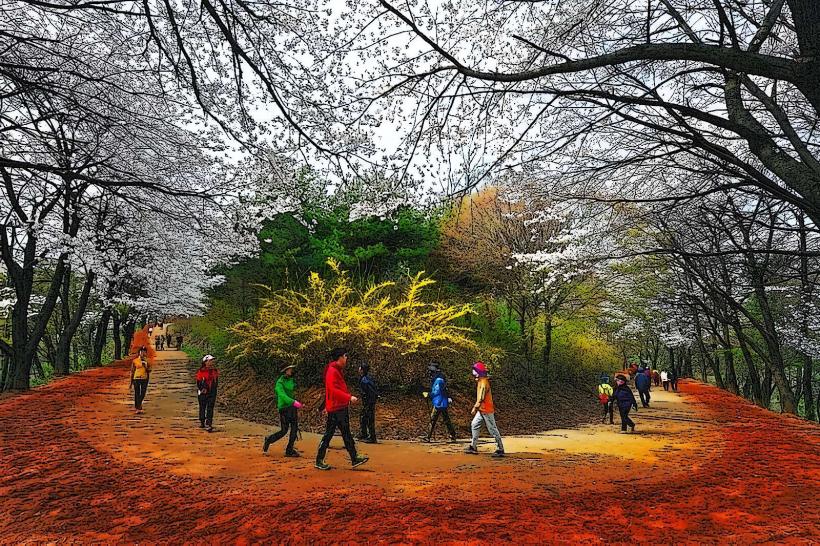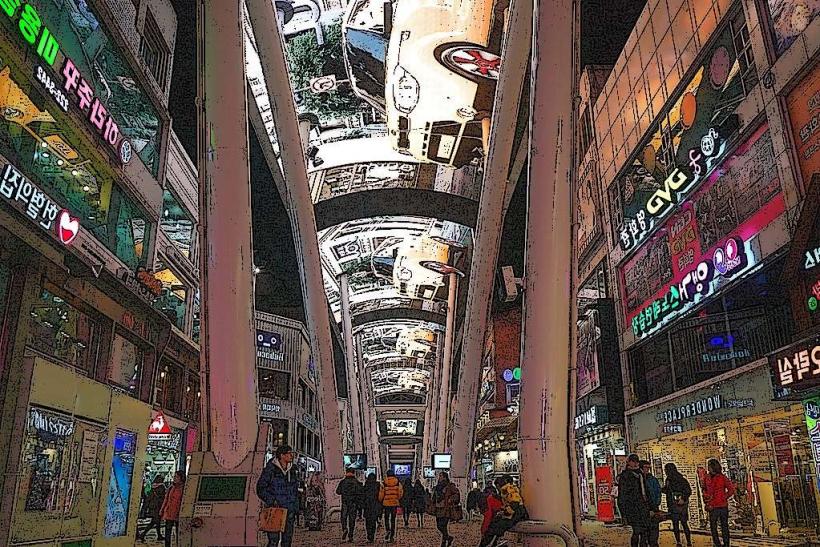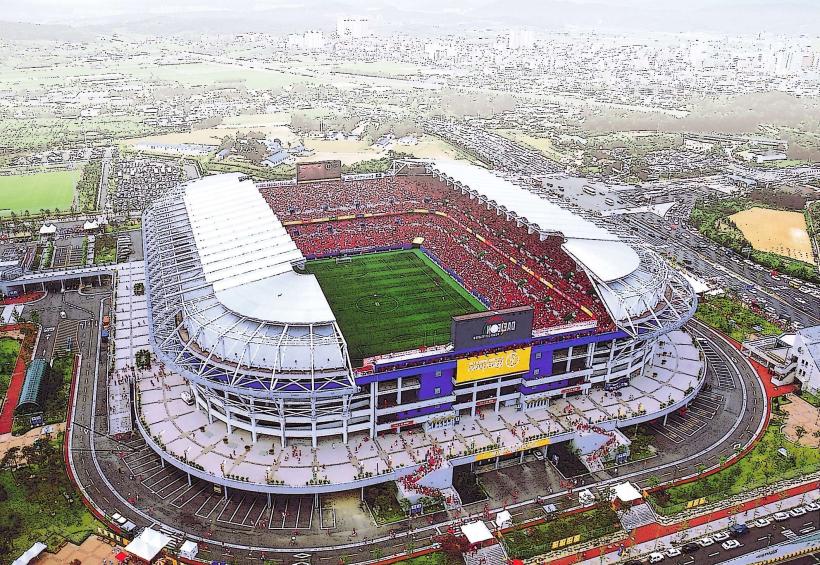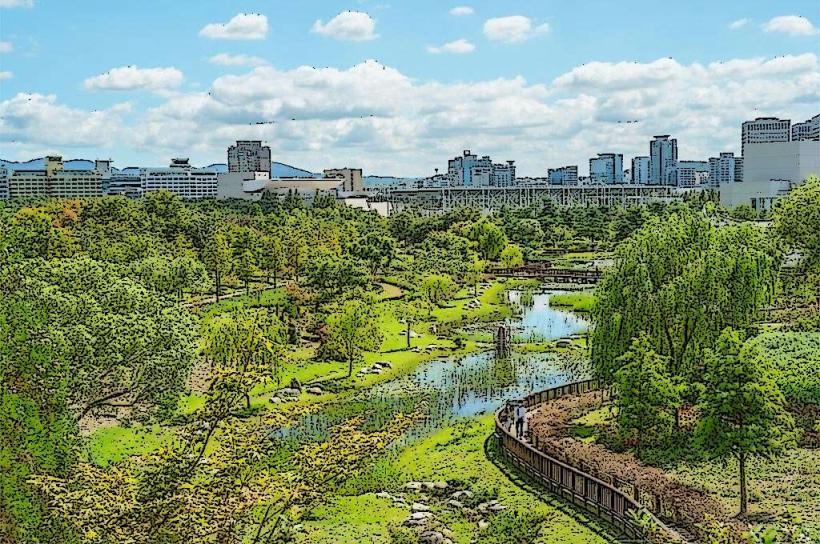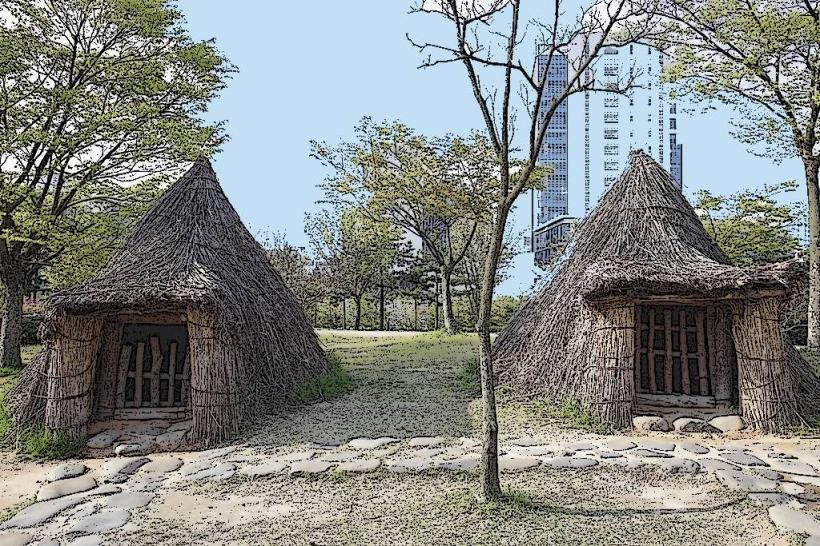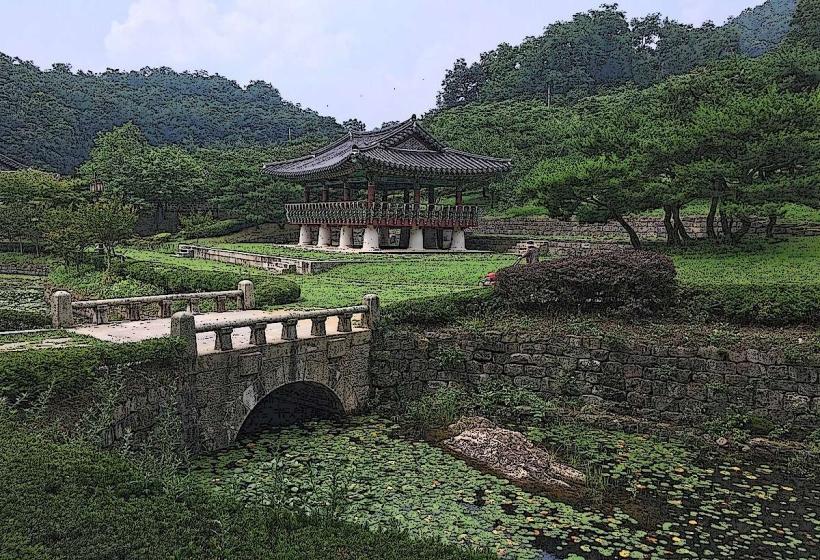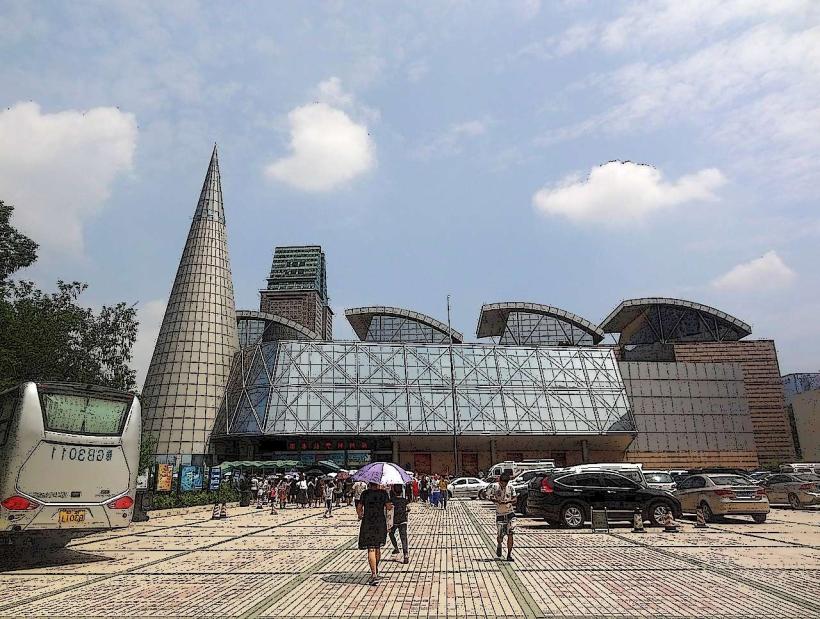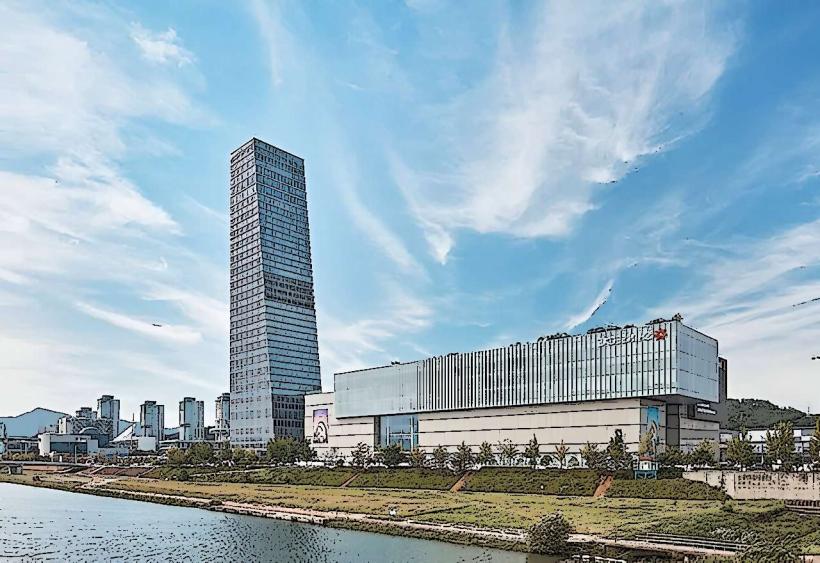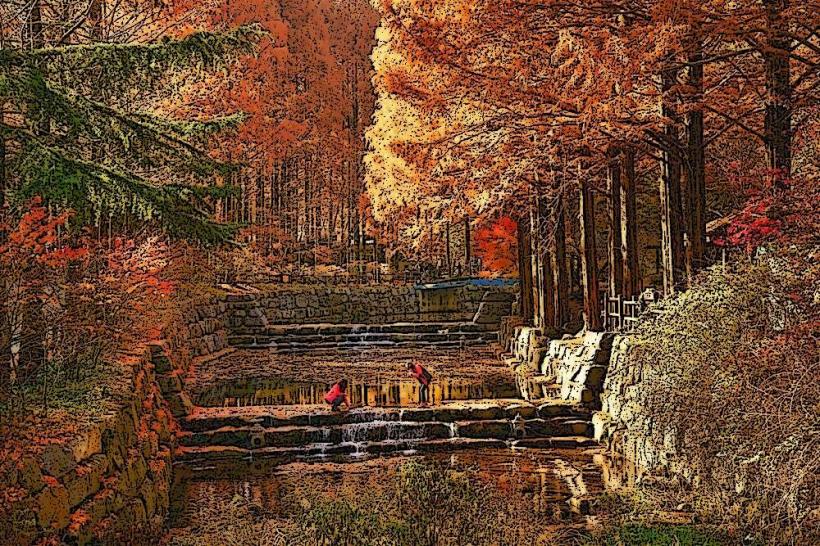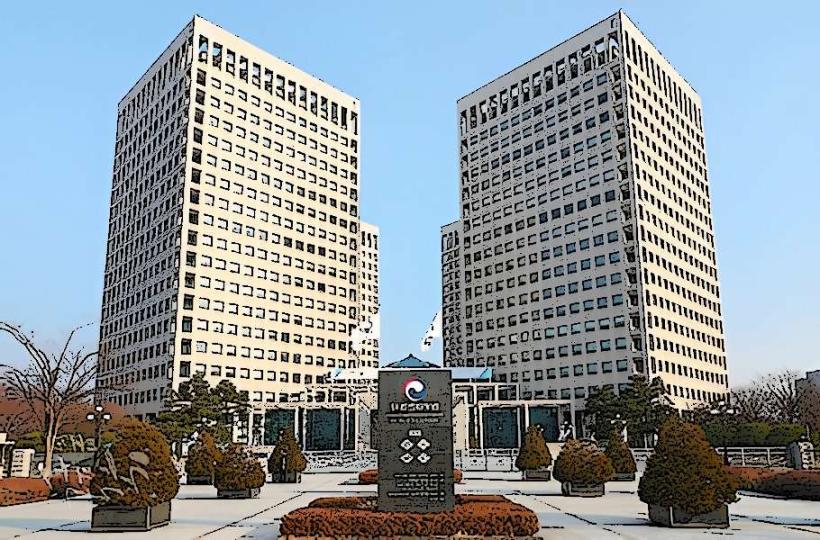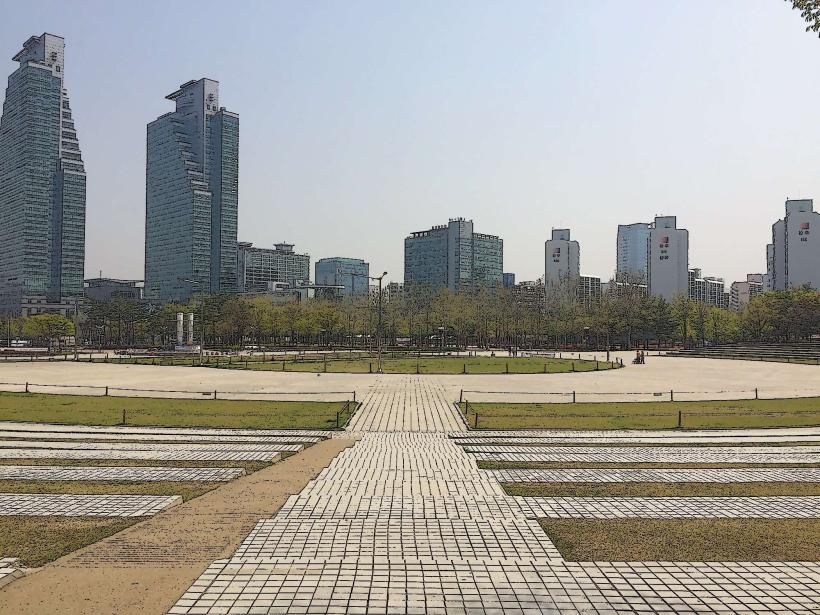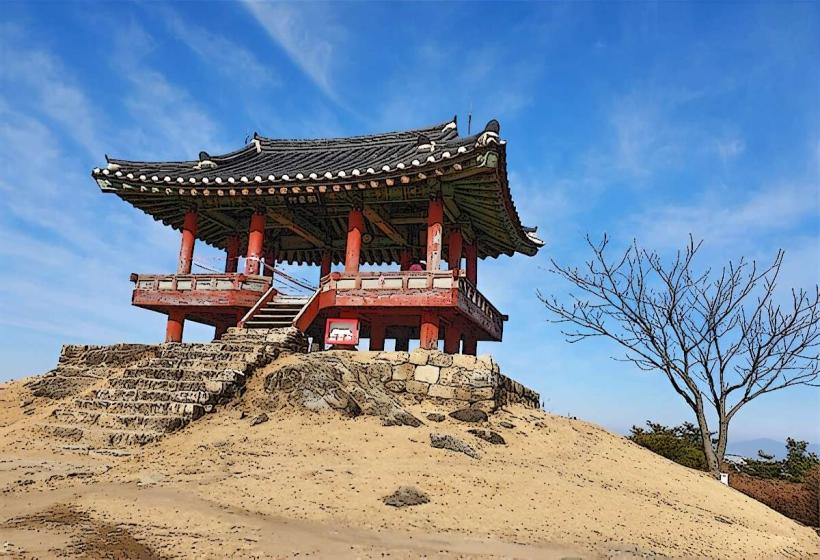Information
Landmark: Ppuri ParkCity: Daejeon
Country: South Korea
Continent: Asia
Ppuri Park, Daejeon, South Korea, Asia
Ppuri Park is a themed park located in the Gwanpyeong-dong area of Daejeon, South Korea. It is dedicated to the concept of "ppuri," meaning root or origin, and features sculptures and installations representing family trees and ancestral lineage.
Visual Characteristics
The park's primary visual element is its collection of sculptures, many of which are abstract representations of family trees. These sculptures are constructed from materials such as metal and stone, with some incorporating polished surfaces that reflect light. The park is landscaped with a variety of trees and shrubs, providing green spaces between the installations. Pathways are paved with concrete and stone.
Location & Access Logistics
Ppuri Park is situated approximately 15 kilometers southeast of Daejeon city center. Access is primarily via local roads, with the main access point off Gwanpyeong-dong 1-ro. Limited on-site parking is available. Public transport options include bus routes such as 311 and 312, which stop within a 500-meter walk of the park entrance.
Historical & Ecological Origin
Ppuri Park was established in 2003. The concept was developed to commemorate the importance of family roots and ancestral heritage within Korean culture. The park's design is intended to be a physical manifestation of genealogical connections.
Key Highlights & Activities
Visitors can walk through the park to view the various family tree sculptures. Specific installations include the "Ancestral Tree" and the "Family Tree of the World." The park also features a small pond and walking paths. Photography of the sculptures is permitted.
Infrastructure & Amenities
Restrooms are available within the park. Shaded areas are provided by mature trees. Cell phone signal (4G/5G) is generally consistent throughout the park. No on-site food vendors are present, but commercial areas with dining options are located approximately 1 kilometer north of the park.
Best Time to Visit
For optimal lighting conditions for photography, late afternoon (approximately 3 PM to 5 PM) provides softer shadows. The park is accessible year-round, but spring (April-May) and autumn (September-October) offer pleasant temperatures and visual appeal due to blooming flowers and fall foliage, respectively.
Facts & Legends
A unique aspect of Ppuri Park is the "Family Tree of the World" sculpture, which aims to represent the interconnectedness of all humanity through a stylized genealogical structure. Local tradition suggests that spending time contemplating one's lineage within the park can bring a sense of grounding and connection to one's ancestors.
Nearby Landmarks
- Daejeon World Cup Stadium (2.5km Northwest)
- Expo Science Park (4.0km West)
- National Science Museum (4.2km West)
- Daejeon Arts Center (4.5km Southwest)

